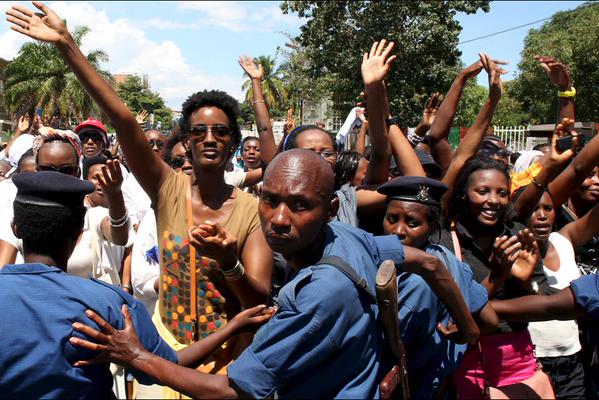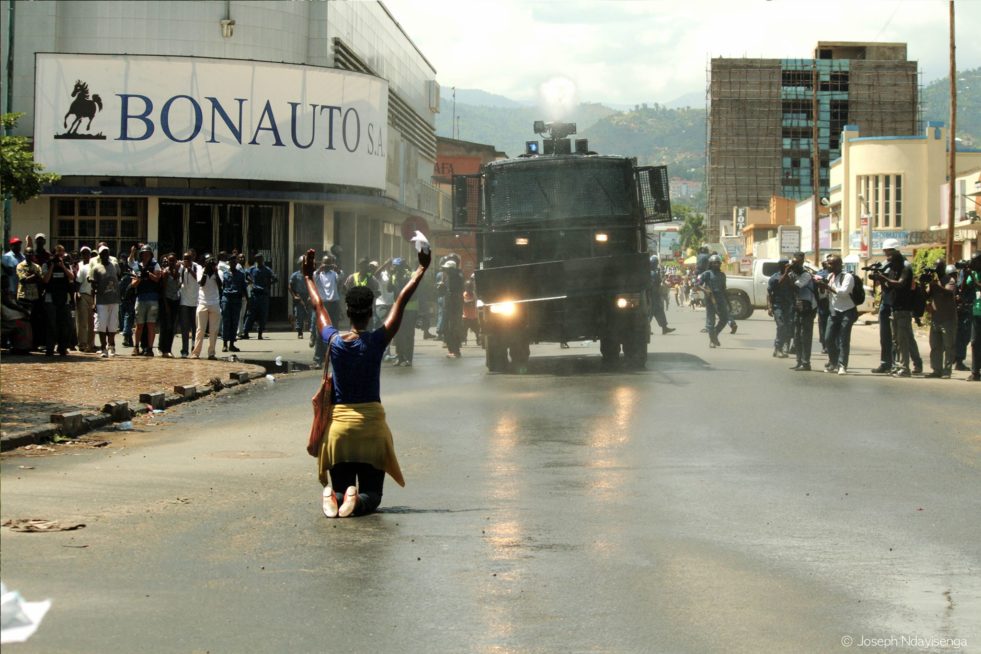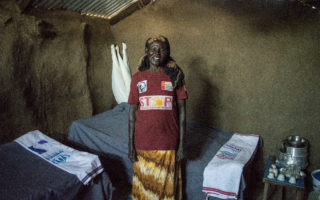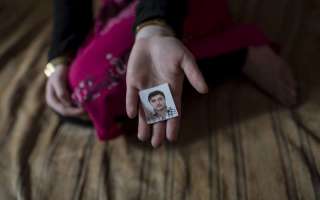
Burundian women (Ketty, front left) march for peace in capital Bujumbura, May 10, 2015. ©Photo courtesy of Ketty Nivyabandi
Ketty Nivyabandi is longing for her country, but she is determined to continue her fight for women in Burundi – a fight that caused her to lose her homeland.
By Gisèle Nyembwe in Ottawa, Canada
“It has been close to four years now. My most cherished dream is to be able to return home one day. That’s really all I wish upon a star,” says the 40-year old poet and activist.
Ketty’s determination to bring about change in the lives of Burundian women was tested in May 2015. She organized a historic all-women protest in Bujumbura after the President announced plans to seek a third term. Unbeknownst to Ketty and the women who had joined the protest, an attempted coup d’état was happening at the same time. The demonstration, although peaceful, was repressed.
Following this pivotal moment in her life, Ketty and other activists received threats and she decided that it was time to seek safety for her and her two girls. “I left with my dear friend and fellow march organizer, and we drove through several military roadblocks, each time fully aware that this might be the end. I was able to leave, but I know many who have since lost their lives.”

Ketty kneels in peaceful protest, before a police water cannon used to disperse the women’s march. ©Photo courtesy of Joseph Ndayisenga
Later, when visiting relatives in Canada, she felt compelled to claim asylum: “For an activist, it is never easy to leave your own country. You put your life on the line every time you raise your voice. You do that because of the profound love that you have for your country and your people, and it is extremely difficult to leave all that behind.”
The situation in Burundi is still characterized by political tensions and forcible displacements. Like Ketty, more than 400,000 refugees have fled to seek safety in neighboring countries since 2015. Continued underfunding has plagued relief efforts, making this one of the most neglected refugee situations globally.
A refugee in Canada since September 2015, Ketty is tirelessly looking for ways to bring women’s voices to the fore. She is also keenly aware of the need to shed more light on refugee women globally as they represent half of the displaced. She uses her poetry to raise awareness and connect with people. But, she also wants to contribute all she can to Canada, her newly adopted home.
“There is much work to be done here in Canada too. I particularly intend to use my energy to stand against injustice wherever I witness it.”
She feels blessed to now work with the Nobel Women’s Initiative, an organization rooted in feminist activism that gives support to women’s peace movements around the world. Her work with the Initiative has helped her stay focused on her activism in support of women’s rights globally.
On International Women’s Day (8 March), Ketty recognizes that women still have a long road to travel to achieve a more gender-just world: “It is such a gift to witness everyday how women rise for peace and justice in their communities,” she says. “How serendipitous that I was pushed out of my country for leading women’s marches for peace, and ended up supporting similar movements, now on a global scale. I have no doubt that the brave and collective work of women globally will birth the peaceful world we all seek.”





